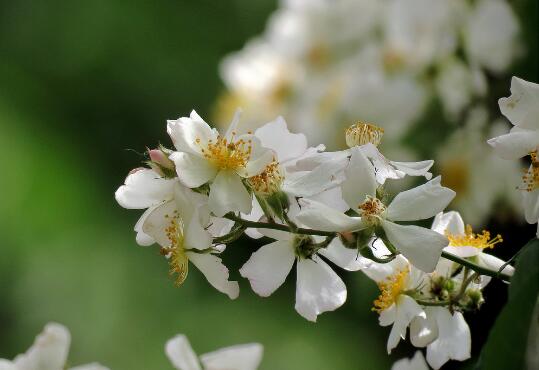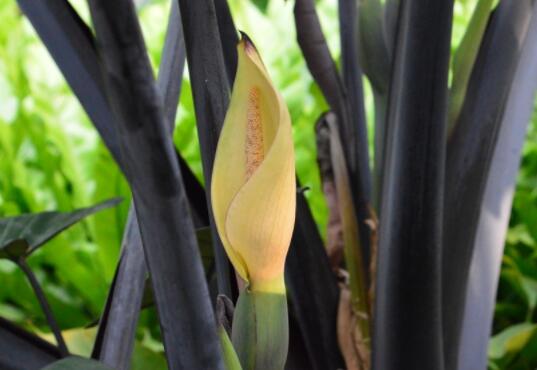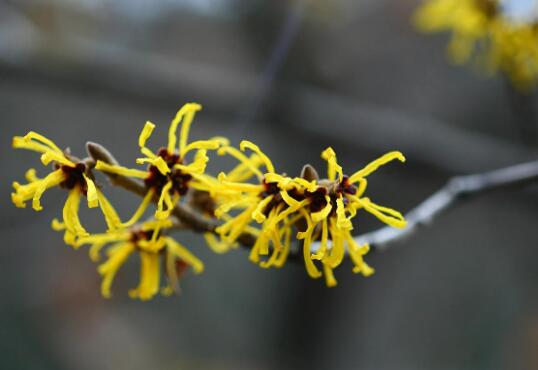What should we do if the flowers grow insects? control of diseases and insect pests of tea flowers / 2 insect pests 2 diseases
In the process of breeding flowers, the last thing we want to encounter is diseases and insect pests, this kind of problem is very harmful to the plant, not only affect the ornamental, but also lead to the phenomenon of plant death. So what should we do if the flowers grow into worms? What do you need to do to prevent and control the diseases and insect pests of tea flowers? Next, the editor will take you to learn about it.
First, what to do when the flowers grow into worms? find the reason.

If you want to know what to do when the flower grows, first of all we know what kind of insect is growing, so that we can carry out targeted treatment, because the treatment methods and drugs used for each kind of diseases and insect pests are different, we need to prescribe the right medicine to the case. In the following, there are detailed ways to deal with all kinds of diseases and insect pests, friends who are troubled in this respect can learn about it.
II. Pest control of tea flowers (pest pests)
Red spider
Red spider is an animal of the family Tetranychidae, which has a wide range of distribution and miscellaneous feeding habits, and can harm more than 110 kinds of plants, and because of the small size of this pest, we generally find that flowers have suffered more seriously. This can only be used by pests to suck the sap in the leaves, resulting in the destruction of chlorophyll in the flowers, resulting in drying, yellowing and even shedding.
Prevention and control methods: when we deal with the diseases and insect pests of this kind of tea flower, if the individual leaves are injured, we can directly remove and destroy the damaged leaves, and if there are not more animal children, it can be sprayed with 40% triclofenac EC 1000-1500 times.
Aphids
Aphids are a pest that exists in many plants, and the flower is no exception. It is a plant-eating insect, which mainly harms the leaves and stems of the flower. It will gradually absorb the sap, resulting in a large loss of nutrients in the plant. With the passage of time, it will also cause the plant to gradually wither and die.
Control methods: when we deal with the diseases and insect pests of this kind of tea flowers, if the number of pests is relatively small, we can prune the damaged branches and disinfect the plants. If the quantity is large, we can directly use 3000 times of 50% aldicarb wettable powder to spray directly.
III. Pest control (disease) of Dendrolimus officinalis
Powdery mildew
Powdery mildew is a disease caused by fungi. When this disease occurs, there will be many dusty white mildew spots on the flowers. This phenomenon will affect the photosynthesis of the flowers, which will gradually lead to leaf shedding and plant withering. This shows the harmfulness of powdery mildew among the diseases and insect pests of the flowers.
Prevention and control methods: in the prevention and control of powdery mildew, we can use 50% Dysenamine 800-1000 times liquid to spray the flowers, usually once every 7-10 days, and can be cured after 2-3 times.
Anthrax
Anthracnose is a disease that mainly occurs on the leaves of the teal flower. At the initial stage of the disease, many water-stained yellow spots appear on the leaves, and after expansion, there are oval to irregular brown or yellowish-brown spots. In the later stage, the disease spots will cause the leaves to dry up and produce small black spots arranged in wheel patterns.
Prevention and control methods: the emergence of this disease is mainly due to poor ventilation in the maintenance environment, so we must maintain environmental ventilation when breeding. As for the treatment of this disease, we can use 1500 times of topiramate to spray the disease, usually once a week, 3-4 times can be cured.
How to propagate, the propagation method of Tetranychus angustifolia / mainly by cutting
Euphorbia angustifolia is a common ornamental flower plant in people's life, and there are many people raising it in all parts of our country. With the increase in the number of farmers, people are more concerned about their reproduction. How do they reproduce? What are the propagation methods of Rabdosia paniculata? Next, the editor will take you to learn about it.
1. How to propagate the flowers, cuttings / strips
When it comes to how to reproduce, in fact, it is mainly divided into two methods: cutting propagation and striping propagation, of which cutting propagation is a more commonly used one, although striping propagation is relatively less, but the survival rate is not low at all. in the following, there are two specific methods of reproduction, let's take a look at it.
2. Methods of propagation of Dendrolimus officinalis
Cuttage propagation
1. Substrate selection, humus soil
Before we breed the flower, we first need to choose the substrate, which is a step to lay a good foundation, so we must choose the most suitable one. Generally, it is best to choose loose and fertile humus soil as the matrix, this kind of soil drainage and air permeability are better, so that plants can better absorb nutrients, but also not prone to stagnant water.
two。 Matrix disinfection, high temperature disinfection
After we have selected the substrate, we also need to disinfect it so as not to infect the flower with bacteria. There are two ways to disinfect it. One is that we can break it up and lay it flat and expose it in strong light. At the same time, we can also put it in a pan and turn it on fire to stir-fry, so that even if there are diseases and insect pests in it, they will be killed because of the high temperature.
3. Selection of cuttings and branches with strong growth
After we have selected a good substrate, we also need to choose cuttings. Generally speaking, it is best to choose branches that grow stronger and are free from diseases and insect pests as cuttings, so the survival rate will be higher. If we choose branches that look slim, then it is basically difficult to survive, so we should not be too casual in the choice.
4. Cutting method, subtracting the bottom leaf
In the method of propagation, cutting propagation is a relatively simple one. Before cutting, we can use chopsticks to cut a hole in the substrate, then trim off the leaves at the bottom of the cuttings, and then insert the cuttings into 1pm 2. This operation can avoid damage to the cuttings, is very practical, and then watered and placed in a cool place for a week can always be cultured in the sun.
Striping propagation
In the process of striping propagation, we should select the long branches with strong growth, then bend them and bury them in the soil, or wavy strips, and then separate them from the mother plant after taking root. This method is generally best carried out in spring and autumn, because the climate is more suitable for its growth, so the survival rate will be higher.
The floral language of tea flowers
The flower language of the tea flower has the meaning of "the beauty of the dead end". When the flower blossoms, it means the end of a relationship, which means that the most brilliant and prosperous years of life have passed, so when the flower season is in full bloom, the whole flower season is over. there is now often said, "blooming to the blooming of flowers." Some people also compare it to a woman's youth, and blooming means that a woman's youth is gone.
The words of the flowers are so sad, do you know how to raise them?
- Prev

How to deal with the long insects of sea taro flowers? The pest control of sea taro flowers/2 pests 3 diseases
Diseases and insect pests can be said to be a problem that all plants are afraid of, and calla flowers are no exception. Such problems not only affect their ornamental nature, but also lead to the phenomenon of plant death when serious. So what if the taros grow worms? How to prevent and control the pests of sea taro flowers
- Next

What to do with the worms of witch hazel? pest control of witch hazel / 2 insect pests and 3 diseases
Plant diseases and insect pests are the most unwanted situation in the process of plant growth, and witch hazel is no exception. This kind of problem is very harmful to it, which not only affects its ornamental, but also leads to its death. So what if the witch hazel grows worms? How to control the diseases and insect pests of witch hazel
Related
- Fuxing push coffee new agricultural production and marketing class: lack of small-scale processing plants
- Jujube rice field leisure farm deep ploughing Yilan for five years to create a space for organic food and play
- Nongyu Farm-A trial of organic papaya for brave women with advanced technology
- Four points for attention in the prevention and control of diseases and insect pests of edible fungi
- How to add nutrient solution to Edible Fungi
- Is there any good way to control edible fungus mites?
- Open Inoculation Technology of Edible Fungi
- Is there any clever way to use fertilizer for edible fungus in winter?
- What agents are used to kill the pathogens of edible fungi in the mushroom shed?
- Rapid drying of Edible Fungi

